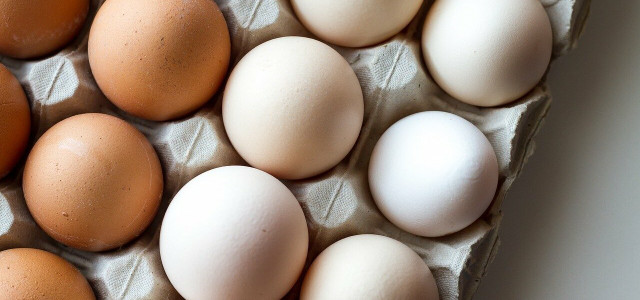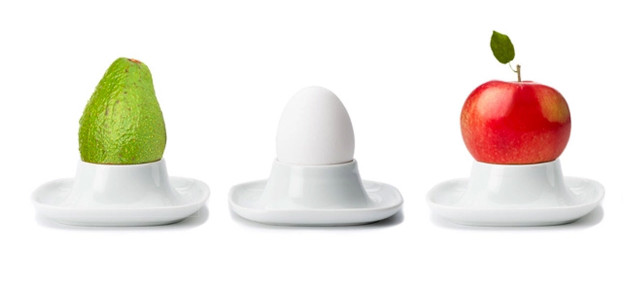While browsing stalls at farmers' markets, do you find yourself wondering how long farm fresh eggs last? We'll take a look at how long they keep, and how to store them properly.
Fresh is best when it comes to nearly everything, and that includes eggs. You can usually find farm fresh eggs at local farmers’ markets, or you might even consider raising your own chickens in the backyard to guarantee a supply of fresh eggs.
How Long Are Farm Fresh Eggs Good For?
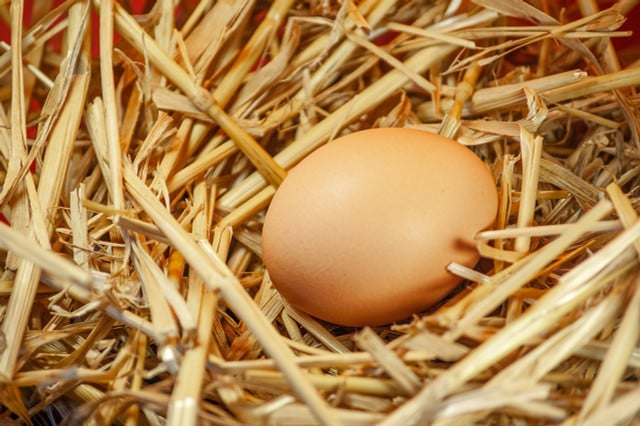


(Foto: CC0 / Pixabay / Kathas_Fotos)
As with anything fresh, it’s best to use your eggs as soon as possible. How long farm fresh eggs last depends on how they’re stored and on whether they are washed or unwashed. Let’s take a look:
If you find out that your farm fresh eggs are unwashed, this means they still have the bloom on them, which is a protective layer around the entire shell. This layer helps to keep out bacteria, which is why these eggs can be stored on the counter for up to one month. They are freshest when consumed within 2 weeks, but are safe to eat within a month when stored on the counter. To extend the shelf life even further, store your unwashed eggs in the fridge. This way, they’ll keep for up to 6 months.
For eggs that have been washed, their shelf life is slightly different. Due to the bloom being damaged, washed eggs are more susceptible to bacteria, which is why you shouldn’t store them on the counter. It’s best to keep washed eggs in the fridge because cooler temperatures help control the growth of bacteria. If stored in an airtight container in the fridge, they can still last as long as their unwashed counterpart.
If you’re unsure if your eggs are still good, check out: 4 Easy Egg Tests: How to Tell If Eggs Are Good or Bad
The Difference Between Store-Bought & Farm Fresh Eggs
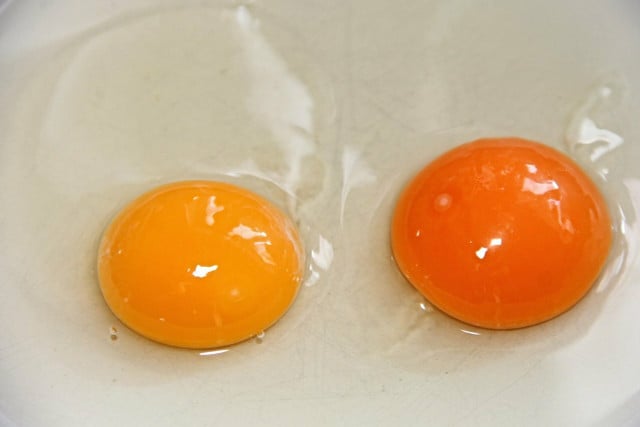


(Foto: CC0 / Pixabay / manfredrichter)
If you think that an egg is an egg, no matter where it comes from, you are quite mistaken. In fact, there are several reasons to choose farm fresh over store-bought eggs.
- Yolks: The yolks of farm fresh eggs are often said to be richer in both color and taste, and are typically much creamier. Store-bought eggs will generally have a pale yellow yolk that doesn’t have much flavor.
- Shells: Shells of store-bought eggs are thinner than those from farm-raised chickens. This is because of the diet and living conditions of the chickens that lay them. Factory-farmed chickens rarely (if ever) see the light of day, and don’t have room to walk around, which affects the quality of eggs produced.
- Nutrition: A study from 2007 shows that farm fresh eggs from pastured chickens contain less saturated fat and cholesterol than commercially produced eggs. In addition, they are also richer in vitamin A and E, omega-3 fatty acids, and beta-carotene.
Did You Know? The color of the eggshell doesn’t make any difference at all – brown eggs aren’t healthier for you than white eggs.
Ways to Use Farm Fresh Eggs
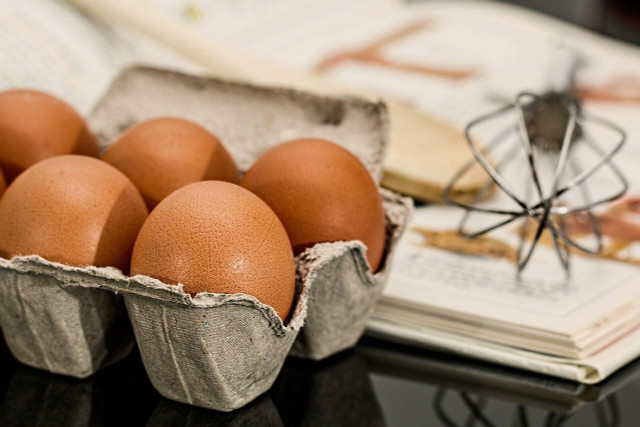


(Foto: CC0 / Pixabay / stevepb)
If you find yourself with eggs that need to be used up, why not get some inspiration from some of our great recipes?
- Easy Gingerbread Recipe
- Leftover Spaghetti Frittata
- Hard or Soft Boiled Egg
- Traditional German Gingerbread Cookies
- Kladdkaka: Swedish Chocolate Cake Recipe
- Peanut Butter and Chocolate Chip Cookies
Read more:
- Recycling Egg Cartons: Here’s How It’s Done
- Can Butter Go Bad? Not as Quickly as You Think
- Speciesism: What Does It Mean and How Can We Prevent It?
Do you like this post?






